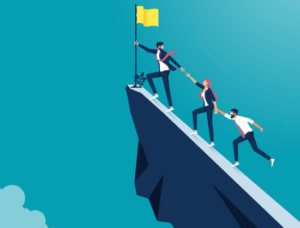
Garage doors are an essential component of any home, providing security, convenience, and aesthetic appeal. Understanding the functionality of your garage door can help you maintain it effectively and address issues that may arise. This guide covers key considerations for homeowners regarding garage door openers, spring repairs, and other important factors to ensure your garage door operates smoothly.
Garage Door Opener System: Enhancements for Modern Convenience
The Garage Door Opener System is the heart of your garage door’s functionality. This electric motorized device controls the opening and closing of the door, allowing homeowners to enter and exit their garages with ease. Here are several enhancements and features to consider when evaluating or upgrading your garage door opener:
- Types of Openers: Garage door openers come in various types, including chain-drive, belt-drive, and screw-drive systems. Chain-drive openers are durable and cost-effective, while belt-drive models offer quieter operation. Screw-drive systems are low-maintenance but may not be as widely used.
- Smart Technology: Modern garage door openers often come equipped with smart technology, allowing homeowners to control their doors via smartphone apps. This feature offers convenience and peace of mind, enabling you to monitor and operate your garage door remotely.
- Battery Backup: Consider investing in a garage door opener with a battery backup feature. This ensures that your garage door remains functional during power outages, providing access when you need it most.
- Safety Features: Look for openers with safety features such as automatic reversal systems that prevent the door from closing on objects or pets. Additionally, rolling code technology enhances security changing the access code each time the door is used.
By choosing a reliable garage door opener system, you enhance your home’s convenience and safety, making it easier to enter and exit your garage.
Garage Door Spring Repair: Essential Maintenance for Functionality
Garage door springs play a crucial role in the operation of your garage door. They are responsible for counterbalancing the weight of the door, making it easier to open and close. However, over time, these springs can wear out or break, leading to operational issues.
Broken Garage Door Spring Repair
When a garage door spring breaks, it can cause the door to become inoperable or unsafe. Homeowners should avoid attempting to open or close the door until the spring is repaired, as this can lead to further damage. Engaging a professional for broken garage door spring repair is essential, as this task involves high-tension components that can be dangerous if not handled correctly.
Types of Springs
There are two main types of garage door springs: torsion springs and extension springs. Torsion springs are located above the door and are designed to lift the door twisting, while extension springs are found on either side of the door and stretch to facilitate movement. Knowing the type of springs your garage door uses can help you better understand maintenance and repair needs.
Signs of Spring Issues
Homeowners should be aware of signs indicating that garage door springs may need repair or replacement. These signs include:
- Difficulty Opening or Closing: If the door struggles to open or closes unevenly, it may be a sign of spring wear.
- Noisy Operation: Unusual noises, such as squeaking or grinding, can indicate that springs are not functioning properly.
- Visible Damage: Inspect the springs regularly for signs of rust, wear, or visible breaks.
Professional Assessment
It is highly recommended to schedule regular maintenance checks with a garage door professional to assess the condition of your springs and other components. This proactive approach can help prevent unexpected breakdowns and ensure safe operation.
Additional Considerations for Garage Door Functionality
While garage door openers and springs are critical components, other factors also contribute to the overall functionality of your garage door. Here are some additional considerations for homeowners:
Regular Maintenance
Regular maintenance is key to ensuring your garage door operates smoothly. This includes lubricating moving parts, tightening hardware, and inspecting cables for wear. A well-maintained door will have a longer lifespan and operate more efficiently.
Weather Seals and Insulation
Consider the weather seals around your garage door. These seals prevent drafts, moisture, and pests from entering your garage, improving energy efficiency and protecting your belongings. If your garage is insulated, ensure the door is also insulated to maintain optimal temperatures.
Safety Sensors
Most modern garage doors are equipped with safety sensors that detect objects in the door’s path. Ensure these sensors are functioning correctly regularly testing them. If the door doesn’t reverse when an object is detected, it could pose a safety hazard.
Choosing the Right Material
Garage doors come in various materials, including steel, wood, aluminum, and fiberglass. Each material has its advantages and disadvantages in terms of durability, maintenance, and aesthetics. Consider your home’s style and your budget when selecting a garage door material.
Professional Installation and Repair
While DIY repairs may seem tempting, it is often best to leave garage door installation and major repairs to professionals. They have the expertise and tools to ensure the job is done correctly and safely, reducing the risk of injury or damage.
Conclusion
Understanding the functionality of your garage door is essential for maintaining a safe and convenient home. By considering the garage door opener system, addressing spring repairs promptly, and taking care of other essential components, homeowners can ensure their garage doors operate smoothly and efficiently. Regular maintenance and professional assistance are key to prolonging the life of your garage door and enhancing its functionality.





